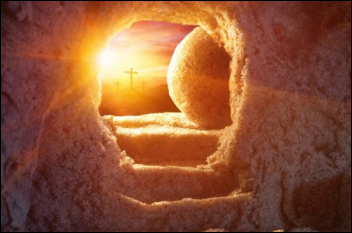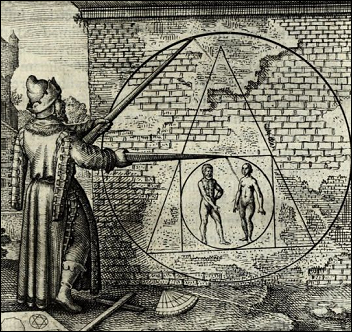Salvation: Orthodox Christianity vs. Gnosticism
Upon the matter of the salvation of the soul, the doctrinal position of Orthodox Christianity differs quite significantly from that of Gnosticism. Not something that should come as a surprise, given that the former did historically brand the latter a heretical movement. Considering the main points of contention, one can certainly understand why.
Now to begin the analysis, it is well to state the Orthodox Christian position on salvation first. That being the simplest to layout, or summarise. Not that this implies that little time will be devoted to it. But rather, as the Gnostic position is more elaborate, with its development, one will more easily begin to see the critical points of difference with the Orthodox Christian perspective.
Faith vs. Knowledge (gnosis)

In any treatment of conventional Orthodox Christianity, perhaps the most obvious introductory point to make is that it is primarily a ‘faith-based’ system. With the grand sacrifice of Jesus i.e. crucifixion having opened the way for souls to be saved, the only thing remaining is to simply be ‘loyal to Jesus’ and his teachings, live the life of a ‘good person,’ and also partake in various church rituals in remembrance of his sacrifice e.g. communion. Following this, upon death, salvation in heaven for such souls is readily assured. Within Gnosticism however, things are much more complex. Certainly there is no denying the significance of the crucifixion event. In this regard there is a massive overlap between most Gnostic groups and Orthodox Christianity.
Both are in agreement that the crucifixion of Jesus was something extraordinary in nature, that did indeed have a profound effect upon the salvation of souls.
Miracle or Magic?
It is quite insightful when one contrasts the different terminology used by both groups to describe the crucifixion event. Whereas orthodox Christians herald it as a ‘divine miracle,’ the Gnostics viewed it as a ‘grand magical working.’ Be that as it may, the greater point of contention between Orthodox Christianity and Gnosticism, actually centres upon the role of Jesus as a figure walking the Earth.
Within Gnosticism, Jesus is essentially a ‘perfected being’ from a higher light realm who entered the lower material world in order to teach men ‘The Mysteries’ i.e. the redeeming knowledge (gnosis) required to ascend to the very place from where Jesus himself came: the purified light realm of the ultimate transcendent God.
In other words, crucifixion was only part of the equation. A necessary event that opened up the pathway for the souls of men to be saved, but not sufficient in and of itself to actually save them. For this, a measure of work was required on the part of men. That being the performance of The Mysteries, which indeed was the crucial knowledge that Jesus brought into the world. The missing element that completed one's ability to attain salvation.
Performing The Mysteries
What Jesus taught was nothing less than how to perform magical rites capable of fundamentally transforming one's being. First and foremost:
1) Special rituals that wiped away sin, which was considered to be a pollutant of the soul. So stripped of this contaminant, the soul was made pure.
2) Incantations and magical ciphers used to protect against evil entities (Archons) which the soul would encounter upon ascension to the perfected realm of the transcendent God.

Now to Jesus’ immediate disciples, the secrets of how to perform these mystical rituals were given freely. They were disseminated to the masses however in code. Specifically in the form of sacred texts, which indeed comprise the Gnostic ‘body of work’ i.e. The Gnostic Gospels and other related writings.
The Gnostic movement as a whole then was essentially made up of those who sought out The Mysteries from such source material. The ideal hope being that the quest documents they were able to obtain were thoroughly authentic, and could be traced back to a true master.
A perfected initiate fully cognisant of The Mysteries; essentially on par with the disciples of Jesus.
The Gnostics were thus ultimately searching for a series of magical recipes if you will, carefully hidden within Jesus’ teachings. Their intent being to subject themselves to those very recipes, being the ‘core ingredient’ which they sought to alchemically transform. To them, a truly efficacious practice in a very real physical sense.

It should not come as a surprise then to realise that the Gnostics did not think much of the rites of The Church, as practiced within mainstream Christianity. To them such rites were held to be mere performance art, or rather just symbolic. In essence, not the ‘real deal.’